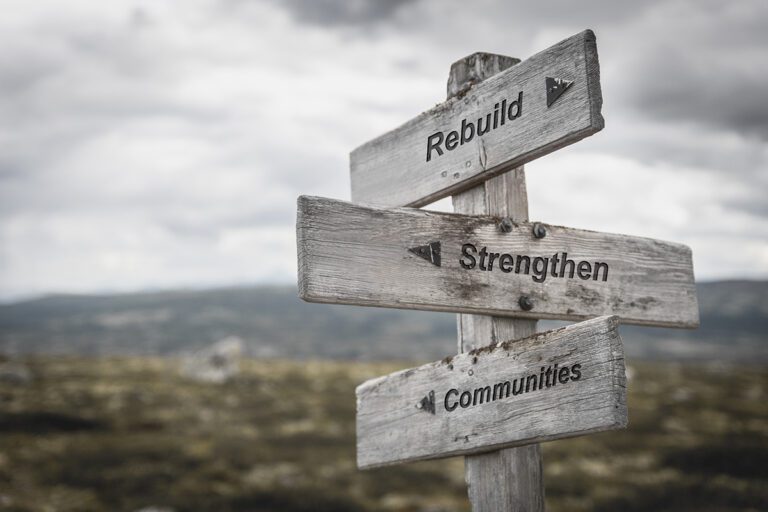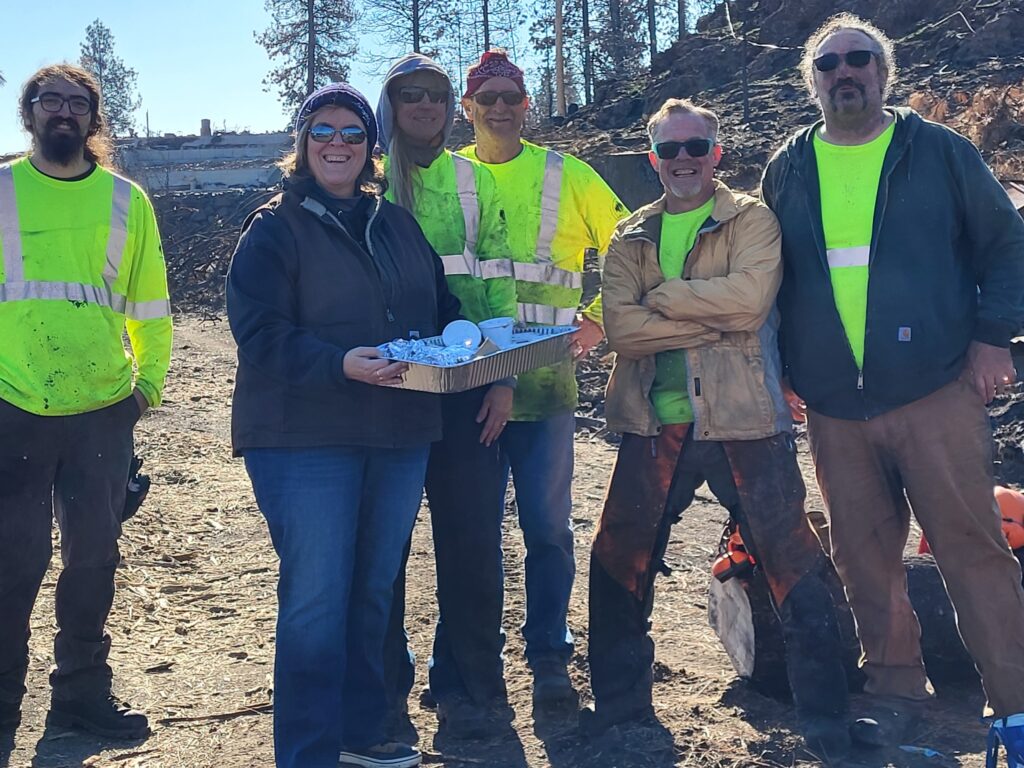About Us
Spokane Region Long Term Recovery Group
The Spokane Region Long Term Recovery Group (SRLTRG) is a 501c3 non-profit with the mission is to create community-based long-term recovery involving a wide range of religious and secular human service agencies to address critical unmet needs of persons impacted by disaster and to enable faith-based and secular leaders in the local community to take ownership of response to human needs following a disaster and assume responsibility for it in a coordinated manner.

The long term recovery works of community-based programs are characterized by collaborative, cooperative, and coordinated efforts among agencies because over time resources grow increasingly scarce and needs emerge which individual care-giving agencies are not prepared to address alone. A community-based recovery group focuses primarily on long-term recovery when disaster survivors try to rebuild their lives. Long-term recovery follows the emergency and relief phases of disaster response.
Executive Director
Terri Cooper
Executive Board
Vacant, Treasurer
Board Members
Craig Sanders
What We Do
The SRLTRG does not deploy human energy and time or precious financial resources to build duplicate structures, but rather coordinates connections of available resources and service providers with those in need.
Our primary roles include:
- Resource development to benefit individuals and the community;
- Case work and assessments to identify family needs and facilitate appropriate provision of resources to meet those needs;
- Volunteer coordination;
- Spiritual and emotional care;
- Advocacy on behalf of disaster survivors who are not receiving adequate assistance because they were ignored or missed by other care-giving organizations;
- Donations management. Many agencies and organizations with different programs will respond to disaster in your community.
In the emergency and relief phases all agencies work in collaboration and seek to:
- Promote maximum community participation and self-help in all phases of disaster response;
- Preserve family unity and enable families to quickly resume or continue functioning;
- Respect traditional cultural and religious sentiments of the community and use them to increase community resilience;
- Allocate resources to the greatest extent possible to activities which have lasting benefits and avoid duplication of benefits;
- Safeguard interests of the persons most vulnerable;
- Mitigate the impact of future disaster by building community disaster resilience and reducing vulnerability of persons living in the community; and
- Ensure fair distribution of assistance on the basis of need and in a manner that avoids undermining a person’s self-reliance or accentuating the bias of others.

Maximizing Resources
Housing repair and rebuilding, for example, is frequently an unmet need addressed by community-based recovery programs because private insurance payments and government assistance often do not cover the full cost. Community-based recovery groups emphasize response to spiritual/ emotional needs as well as physical needs of those who are most vulnerable to disaster. Because elements necessary for healing are often already present in the disaster-affected community, they seek to maximize the effectiveness of existing resources – local churches, community services, and volunteer programs.
Local governmental and community human services agencies, now more than ever, are aware of the long-term recovery mission and are committed to bringing their own resources to the recovery. Together, religious and secular organizations in cooperation provide the greatest benefit to a disaster-affected community.

